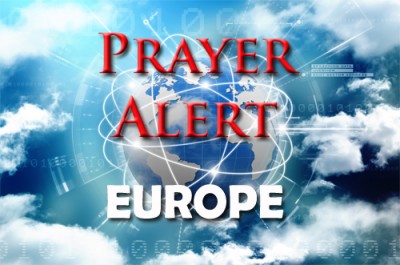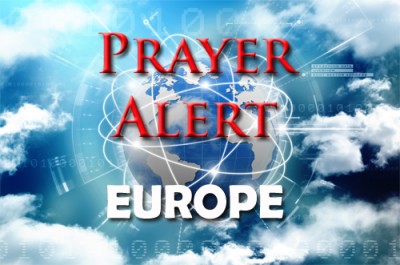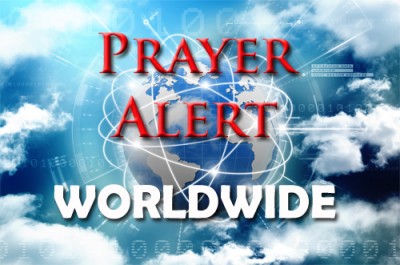Home should be the safest place. But for child victims of online sexual exploitation, it is far from safe. Lockdown has meant being locked in with their abusers, with no way to escape. As you read this, western predators from the UK are paying to livestream the sexual exploitation of children from the Philippines. Tragically, this vile crime is growing. In almost two thirds of cases in the Philippines, children are abused by their own families - like Maarko, who, aged just seven, became a victim performing ‘shows’ for sex offenders in the UK to watch. The pandemic creates a perfect storm for increased child sexual exploitation online. Children are locked in with their abusers, and western predators are at home with more time to spend online. Global law enforcement is reporting that child sexual abuse sites are crashing due to increased demand during lockdown.
Archbishop backs Real Living Wage
28 May 2020280,000 social care workers are in insecure and low-paid work, leaving them vulnerable to Covid-19. A petition has been launched appealing for Matthew Hancock to provide funding so that all social care sector staff can be paid the Real Living Wage of £10.75 an hour in London and £9.30 in the rest of the UK. Dr John Sentamu said, ‘It is morally wrong to put our care workers on the front line in the face of infection and potential death, with limited personal protective equipment, and to do that for poverty pay. I hope that if this epidemic teaches us anything, it will be to draw us back to justice, compassion and love. That is why I am proud to support the campaign for the Government to prioritise the proper funding of social care, ensuring that every care worker will get paid a Real Living Wage.’
Test and trace system begins
28 May 202025,000 contact tracers started work on 28 May, making their contact calls to track down the 2,013 people who tested positive the previous day. They will be told to self-isolate under new test and trace schemes being launched in England and Scotland. Tracers will text, email or call people who test positive with coronavirus and ask who they had contact with. Any of those contacts deemed at risk of infection will be told to isolate for fourteen days, even if they are not sick. Those who have already had the virus will also be asked to self-isolate. The aim of the system is to lift blanket lockdown restrictions and move towards more localised, targeted measures. Contact is defined as spending 15 minutes or more at a two-metre distance; household members; or people with whom you have had face-to-face conversations less than one metre away.
Review two-metre rule
28 May 2020The Prime Minister has asked scientists to review the two-metre social distancing rule to see if it can be reduced in an effort to help public transport and the hospitality sector. On 27 May, Boris Johnson told MPs that members of the scientific advisory group for emergencies (Sage) had been told to review the guidance. While hotels and restaurants are currently scheduled to start reopening from 4 July , hope has been raised for beer gardens to be opened much sooner. Mr Johnson said, ‘On hospitality we are trying to go as fast as we can. It is really difficult to bring forward hospitality measures in a way that involves social distancing. But I am much more optimistic about that than I was. We may be able to do things faster than I previously thought.’ He has now announced that the lockdown will be eased further with effect from 1 June.
People smugglers
28 May 20201,775 migrants entered the UK in small boats this year: a record 741 landed in May. The French navy is escorting them across the Channel and into British waters as smugglers exploit legal maritime loopholes. By a 1974 law, all mariners must provide assistance to vessels in distress at sea. The small boats crossing the Channel are often overloaded and taking on water. When French vessels attempt to intercept them, migrants threaten to jump into the sea, or even throw children overboard. Their refusal to be rescued by French authorities puts lives at risk, so the French have no option but to shadow the boats into British waters, where migrants are safe, knowing they will be taken to Britain, not back to France. MPs are calling for new powers to return people to France.
Europe: easing restrictions
28 May 2020Already the media are saying that a second, more deadly, wave of coronavirus is expected to hit Europe this winter. Europe's top WHO official, Dr Hans Kluge, warns that the second spike could coincide with outbreaks of other infectious diseases. He issued a stark warning to countries beginning to ease their lockdown restrictions, saying, ‘Now is the time for preparation, not celebration’; adding as the number of cases of Covid-19 in countries such as the UK, France and Italy begin to fall, it did not mean that the pandemic was coming to an end. The epicentre of the European outbreak is now in the east, with the number of cases rising in Russia, Ukraine, Belarus and Kazakhstan.
Merkel: pandemic 'stress test' for EU
28 May 2020Germany's chancellor, Angela Merkel, has outlined her vision of Europe's future ahead of taking over the rotating EU presidency, saying the pandemic will be a 'stress test' for the bloc. The presidency is responsible for directing the Council's work on legislation, ensuring cohesion between member states, and supervising the continuity of the EU agenda. She welcomed the proposal for a 750-billion euro rescue fund announced by Ursula von der Leyen on 27 May, but said more still needs to be done. She has previously said that Europe is facing its biggest crisis since the EU was founded and wants the bloc to take more global responsibility in handling the fallout from the pandemic, especially as ties with the USA remain strained. The US is Europe’s most important partner, but there are currently more difficulties than Europe would like.
China’s betrayal of Hong Kong
28 May 2020Until now, Hong Kong has enjoyed freedoms not allowed on mainland China. On 28 May, Beijing announced it will press on with a national security legislation on Hong Kong’s autonomy that overrides the ‘one-country-two-systems’ principle granted to Hong Kong in 1984. The bill will now pass to China's senior leadership. It could end Hong Kong's unique status and see China installing its own security agencies in the region for the first time. Thousands of protesters have been demonstrating against the bill and China’s new national anthem wording. Chris Patten, the last governor of the former British colony,says that China has betrayed the people of Hong Kong and the UK has a moral, economic and legal duty to stand up for them. Hundreds are in custody for unauthorised assembly. Chinese media reported police using tear gas, pepper spray, and water cannon. Washington has called the laws a ‘death knell’ for the city’s autonomy. See







